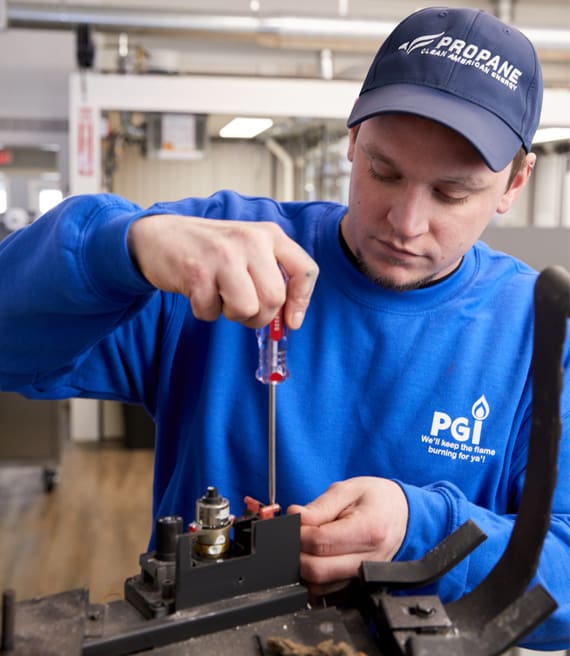Propane plays an important role in our everyday lives. It is an efficient energy source for heating and cooking and is widely used in manufacturing and agriculture.
Propane is delivered by truck to tanks outside our homes and travels from the tank to our homes by underground pipes. Like any fuel, it must be handled and used with safety and care.
Propane is a liquid hydrocarbon that vaporizes into a colorless, odorless, highly flammable gas. In properly maintained and operated systems, propane is completely safe. However, it can be extremely dangerous if an uncontrolled release of propane occurs.
Propane is a safe and efficient fuel, but you do need to know the signs that there may be a problem, just in case there ever is one. To help homeowners detect an uncontrolled release or leak of propane, an odorant (ethyl mercaptan) is added. This odorant gives propane an unpleasant smell like rotten eggs, a skunk’s spray, or a dead animal.
